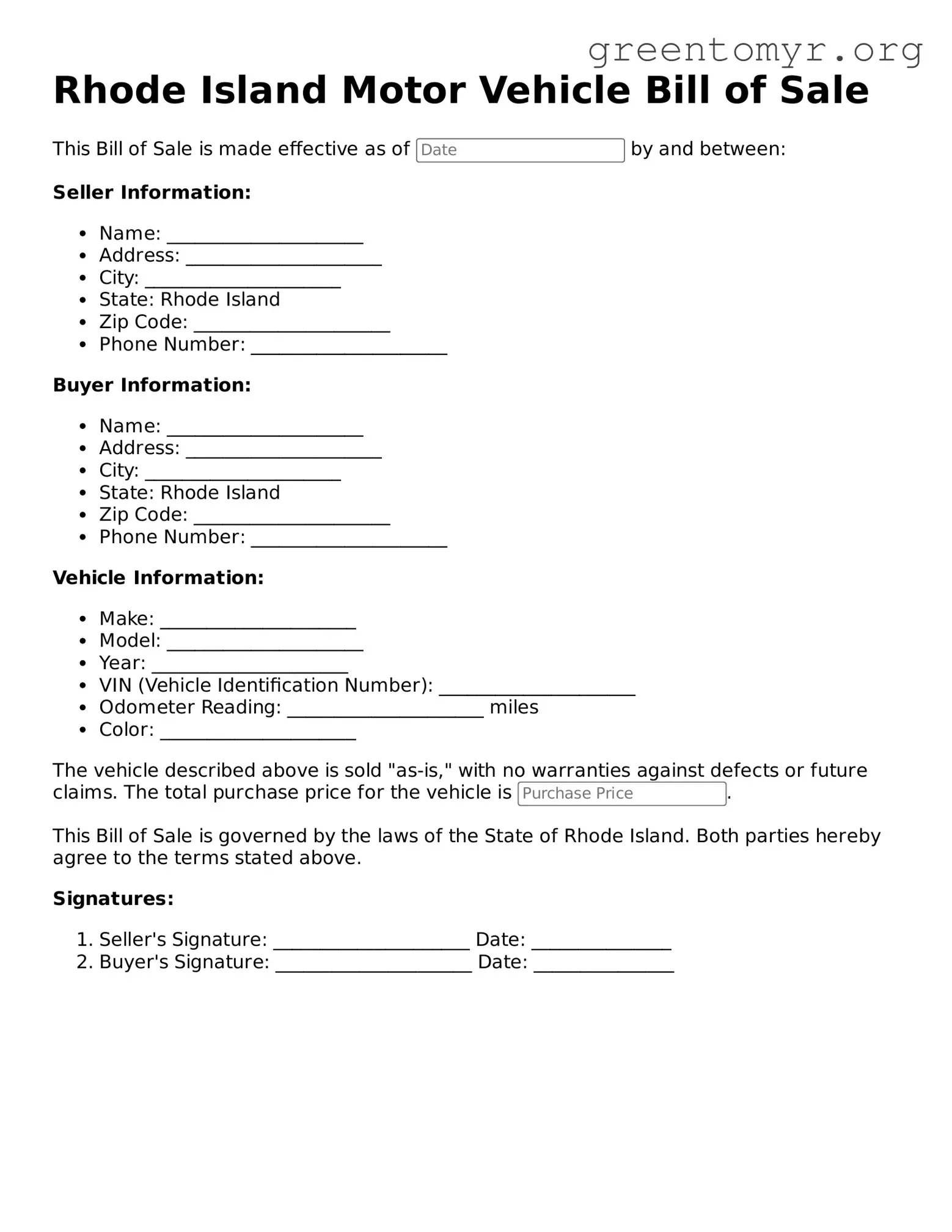When it comes to selling or buying a vehicle in Rhode Island, filling out the Motor Vehicle Bill of Sale form is a crucial step that should not be overlooked. Many people, however, make common mistakes that can complicate the transaction or even lead to legal issues down the line. Here are six mistakes to watch for.
One frequent mistake is leaving out essential details about the vehicle. Every vehicle's Bill of Sale should clearly include the make, model, year, Vehicle Identification Number (VIN), and odometer reading at the time of sale. Missing any of this information can create confusion later and even raise questions about ownership.
Another common issue is not including the purchase price. It’s vital to state the amount paid for the vehicle to establish the necessary legal documentation. When omitted, it can lead to future disputes, especially regarding taxes or if there are claims about the transaction.
People also often forget to sign the form. Both the buyer and seller are required to sign the Bill of Sale to make it legally binding. If either party neglects to do this, it could lead to disputes about the sale or ownership of the vehicle.
In addition, failing to date the document can be a critical oversight. Without a date, there may be uncertainty about when the sale took place. This can be particularly problematic if there are any tax implications or if issues arise regarding the vehicle after the sale.
Another mistake is not providing copies of the Bill of Sale to both parties. Each person involved in the transaction should have a copy for their records. This helps ensure clarity and accountability, and it can be crucial if any issues arise in the future.
Lastly, sometimes the form is not filled out clearly. Handwriting that is difficult to read or using abbreviations can create misunderstandings. It's best to be clear and concise to avoid any possible confusion later. By avoiding these mistakes, both buyers and sellers can enjoy a smoother transaction.
